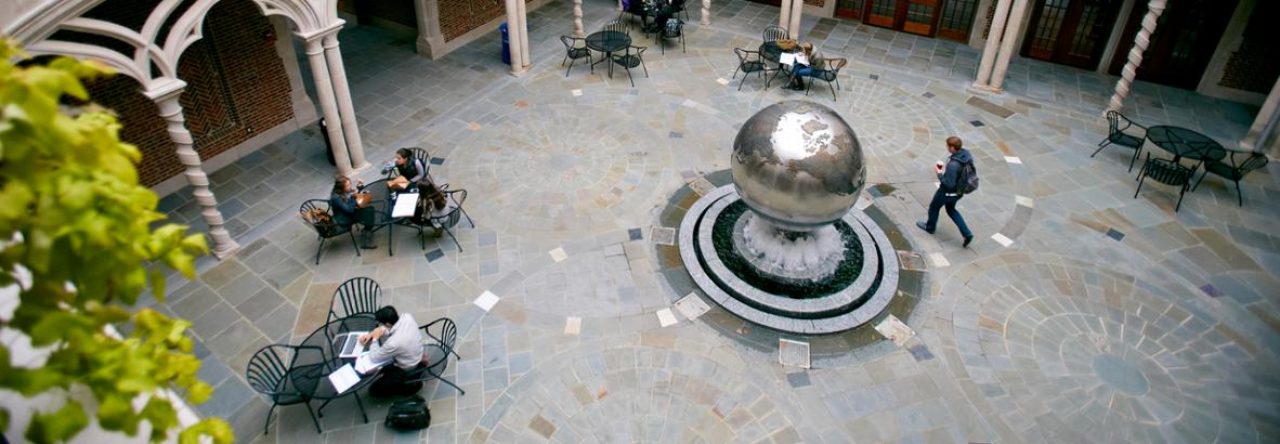This is the wiki (2018-) for the Self-Directed Language Acquisition Program at the University of Richmond. Established in the spring of 2009, the SDLAP provided new opportunities for students to pursue less-commonly-taught languages. Students who have completed the COM 2 requirement are eligible to enroll in the SDLAP after an introductory consultation with Dr. Michael Marsh-Soloway. The SDLAP is a five-course program consisting of an introductory half-credit weekly seminar, SDLC 105, along with concurrent or successive full credit units of self-directed study working with a network of qualified language partners in SDLC 110, 111, 112, 113.
Languages routinely offered through the SDLAP include Korean, Persian (Farsi/Dari), modern Hebrew, and Turkish. Aside from these regular offerings, the SDLAP has also supported students learning Amharic, Bahasa Indonesia, Bengali, Czech, Dutch, Greek, Hindi, Kannada, Portuguese, Quechua, Sanskrit, Swedish, and Wolof. In the nine years since its inception, the SDLAP has promoted hundreds of UR students in their endeavors to acquire new linguistic skills, international knowledge, and deeper cultural sensitivities. Students preparing for or returning from study or service abroad may also use the SDLAP to begin or continue the study of a language not included in the University’s regular course offerings.
This wiki is intended to provide information to students in the SDLAP program, who use the SDLAP Ning to create learning journals and electronic portfolios. Documentation from this wiki is presented on the Ning, and students are encouraged to familiarize themselves with the variety of general and UR-specific language resources to support the creation of individualized learning plans, engage their self-directed courses of study through a multi-faceted approach stressing the activation of real-world skills and communicative sensibilities, and fulfill measurable and realistic goals in the way of acquiring increased linguistic proficiency.
Participants in the Self-Directed Language Acquisition Program:
- learn to set and fulfill their own language-learning goals;
- explore the culture(s) in which their language is spoken;
- develop competence in listening, speaking, reading, and writing.
How will I learn?
This program is “self-directed,” which means that you develop your own learning plans and use available resources to fulfill goals that you have set for yourself. The University has a number of print and electronic resources for less-commonly-taught languages and acquires more as needed; you will be expected to spend 9–10 hours each week learning through these resources and others that you will discover on your own. In addition, you will meet regularly with a language partner to work on oral skills and cultural understanding.
During the first semester of your participation, you will enroll in two courses, SDLC 105 (1/2 unit) and SDLC 110 (1 unit). In subsequent semesters you may enroll in up to three more units of self-directed learning courses.
SDLC 105, Introduction to Self-Directed Language Learning, helps you develop the skills you need to become an autonomous learner of language and culture. You will develop a basic understanding of the structure of human languages and the relationship between language and culture. You will learn how to create a learning plan, use multimedia resources, work with your language partner, and assemble a learning portfolio. Note: Students interested in independent language learning who cannot take SDLC 110 may enroll in SDLC 105 with permission of the professor.
NOTE: SDLC 105 normally meets once a week. Students who have completed a linguistics course may ask to be exempt from this course, but they are expected to fulfill many of its requirements, i.e., complete a learning journal.
In SDLC 110, Self-Directed Language Learning I, you will develop skills in reading, writing, and speaking the language you have chosen. You will investigate the history of the language and the cultures of the areas in which the language is used.
How will I be graded?
Your grade in SDLC 105 will be based on the learning journal that you create in class. This journal will include both the activities you complete for class and reflections upon those activities. In SDLC 110 you will complete a learning portfolio, which will include both weekly reflections on language and culture as well as a short research-based project on a specific linguistic or cultural topic. Your language learning will be assessed at the end of the semester by an outside examiner. Your grade will be based on assessment of your portfolio and these examinations.
What else do I need to know about the SDLAP?
There are several important things to know:
You cannot use courses in the SDLAP to fulfill the COM 2 requirement.
Students enrolling in the SDLAP should have experience as successful language learners. This generally means that they have completed COM 2.
Successful self-directed learning requires a high level of motivation and self-discipline. To obtain permission to enroll in the program, you must demonstrate your interest in the language and your willingness to be responsible for your own learning in an interview with either the chair of Modern Literatures and Cultures or the director of the program.
Students interested in languages other than Persian, Hebrew, and Turkish MUST obtain permission to enroll in SDLC 110. Enrollment depends upon the ability of the program to find a suitable language partner and examiner. In some cases, students may be advised to consider the C-LAC program as an alternative to the SDLAP.
